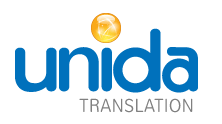One common difficulty posed in translating résumés and business documents is exactly how to translate degrees and certifications. It is not as clean as a simple word-to-word translation. Instead, it involves detailed knowledge of the educational structure of the country in which the degree is awarded.
For example, the degree called in Spain and most of Latin America a bachillerato, in France a baccalauréat, and in some Middle Eastern countries a baccalaureate – is the equivalent of a high school diploma. Even though the word is cognate with the English term “bachelor,” it is not a degree at the same level. Rather, the equivalent of the English bachelor’s degree in Latin America is a licenciado, and in France a licence.
Knowing this distinction is important to translating educational transcripts and résumés. A direct translation to the deceptively similar “bachelor’s degree” would assign a higher qualification than the person actually possesses and can lead to potential liability by the translator if a mistranslation leads to an accusation of falsifying a résumé.
A similar distinction exists between a notary in common-law countries (based on English law, including the UK, USA, most of Canada, Australia, and former British colonies) and in civil-law countries (based on continental European law, including France, Quebec, and Latin America). Common-law notaries have limited functions, confined to attesting signatures on documents and administering oaths. A civil-law notary (notario in Spanish, notaire in French), by contrast, performs all functions of a lawyer except for appearing in court – for example, drafting contracts and wills, settling estates, and closing real estate transactions.
This distinction is even trickier because the title “notary” would be a proper translation. The difference is that the functions in civil-law and common-law countries are completely different. A skillful translator could easily translate notario or notaire as “civil-law notary,” making the distinction clear. But a translator unaware of the differences might simply translate the word alone, with potentially serious consequences that can include criminal charges such as fraud or practicing law without a license.
These two examples illustrate how quality translation and interpretation require not only knowledge of the language, but knowledge of the culture and institutions to ensure the most accurate transfer possible into another language.
Unida Translation is a leader in the translation industry. We help all businesses open up the avenues of communication by ensuring that your organization’s messages are understood in the exact same manner no matter who the audience is. Our company provides outstanding translation services that cover over 125 languages for documents, remotely and in person. What makes Unida Translation different and the best choice for all of your translator-related needs is that our translators and interpreters are certified by a recognized translator and interpreter association. Our organization is also licensed, insured and the only translation company truly located in Northwest Indiana.

